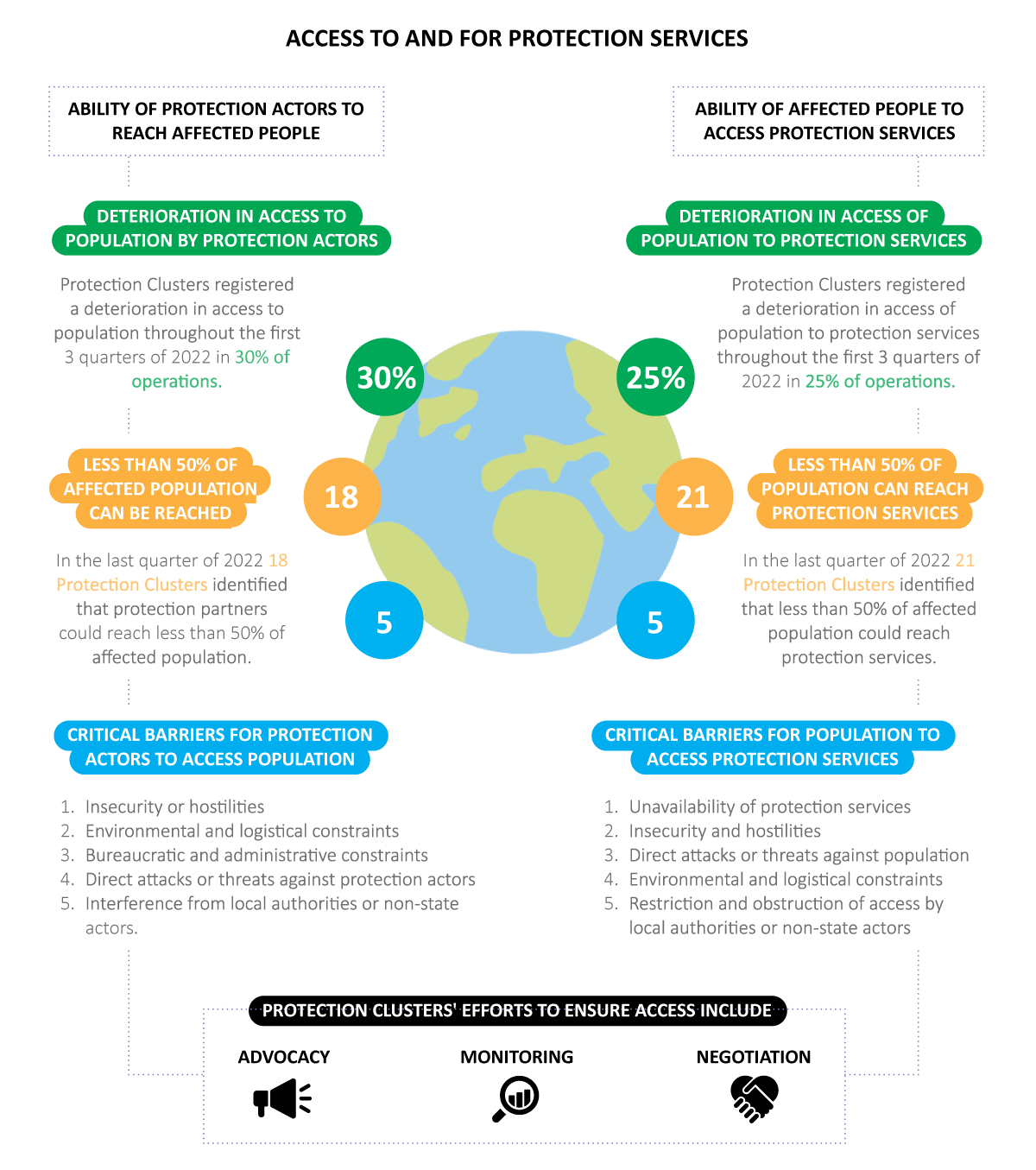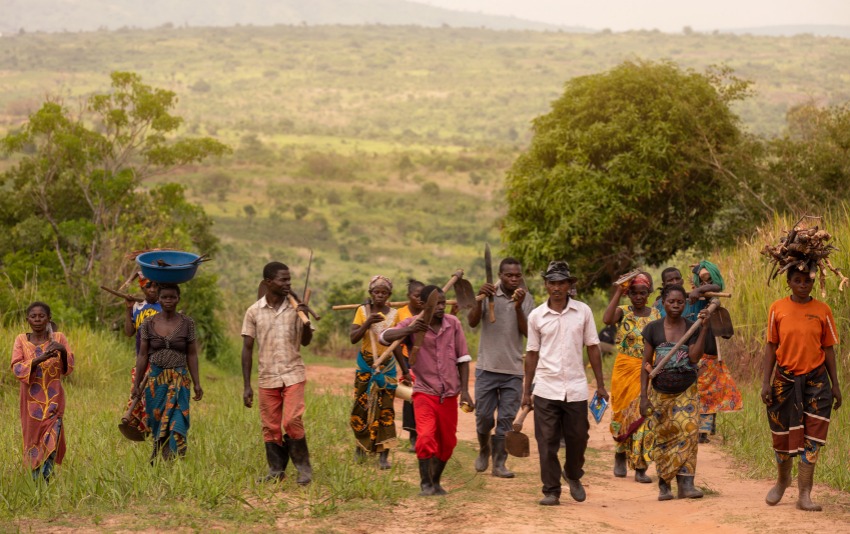Access and Protection

Protection is often disproportionately impacted by access constraints, with our 32 Protection Clusters reporting deterioration of access in 30% of contexts and 25% of populations accessing protection services in the last three quarters of 2022.
People facing severe protection risks are often in areas that are difficult to reach and have limited access to support. The deprivation, denial of, or impediment to access to basic services and assistance, crucial to survival, is a grave protection risk – one that threatens the safety, rights and wellbeing of people – and one that must be addressed collectively as an integral aspect of response efforts. Ultimately, humanitarian access forms the foundation for life-saving humanitarian action and protection.
It is a constant struggle to ensure that much needed protection is provided and accessible in contexts where often protection itself is not allowed or not feasible. Protection-related activities require sustained, safe and timely access to be effective. This access is necessary for the delivery of specialized services, trust-building with communities and duty bearers, and protection monitoring and assessment. One-off or limited access negatively affects these activities and can cause harm to those seeking protection.
The Global Protection Cluster's "Access that Protects" campaign, culminating in the publication of an Agenda for Change, aims to explore the complementarity between access and protection and how these areas of action can be further strengthened, and ultimately harnessed to advance protection outcomes for affected communities.
The Approach
The Global Protection Cluster aims to look at where protection work is being challenged at its foundation due to constraints to access, exacerbating certain protection risks and trends, as well as highlighting some of the ways we can collectively strengthen access for protection looking at leverage points across policy and practice dimensions. Based on a series of consultations, events, and reflections throughout the year, the GPC has developed two core priority areas for change as part of its Agenda for Change, which are meant to complement and align with existing initiatives, and bring forward the overarching objective of protection that all humanitarians share:
Each of the two priorities represents an aspect through which the GPC, together with Protection Clusters and other stakeholders – including Humanitarian Country Teams and Access Working Groups – can help ‘move the needle’ on the kind of sustained, quality access that is critical for protection. As member of the Global Protection Cluster and as per its own mandate, OCHA is supporting the Agenda for Change and will co-lead the initiative. The GPC is committed to working closely with a range of members, partners and allies to take these priorities forward.
Featured Videos
| Opening Remarks Global Protection Forum | Launch of Agenda for Change | Access That Protects in South Sudan | ||||||||||||||||
| 4 ways forward on Access That Protects | Non-Violent Peaceforce in South Sudan | Engagement with Armed Groups, Geneva Call | ||||||||||||||||
| Women’s Protection Teams South Sudan |
Nonviolent Peaceforce Iraq: Accessing Communities |
Barrier Analysis Project, Philippines |
For more information
Marie-Emilie Dozin
Global Protection ClusterUNHCR
Mail: [email protected]
Alison Kent
Global Protection ClusterUNHCR
Mail: [email protected]














